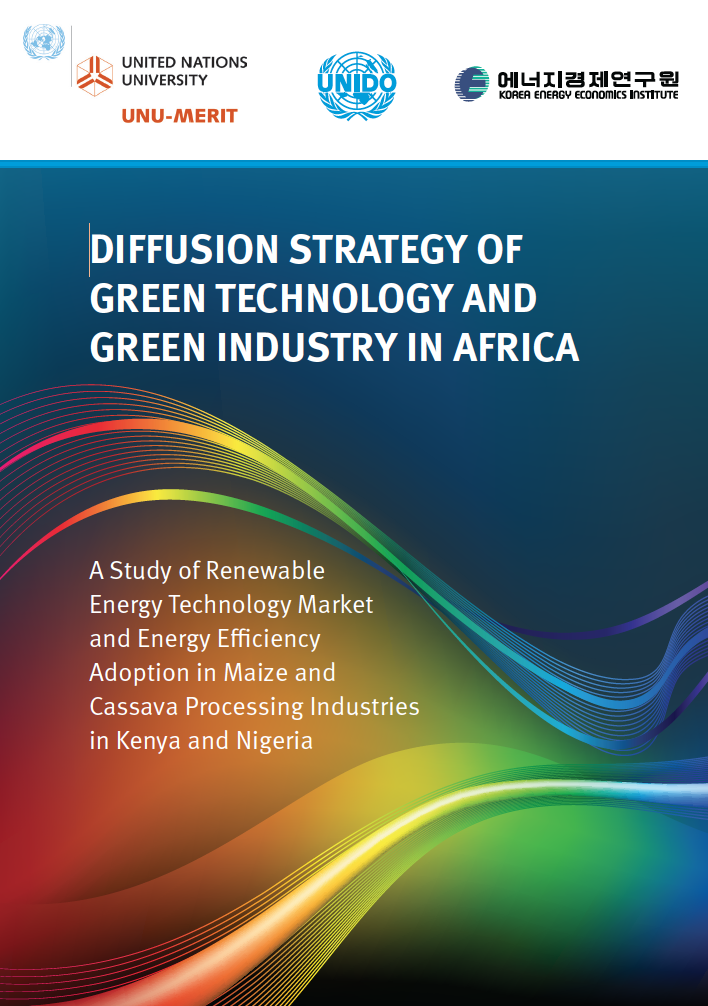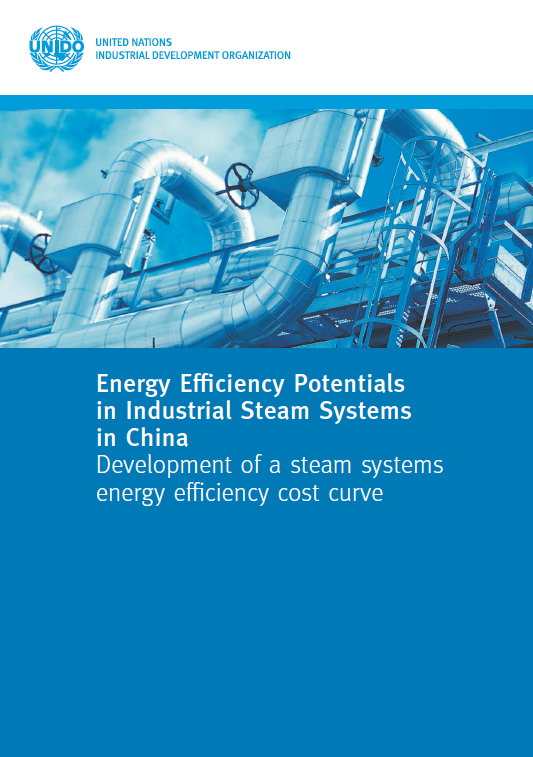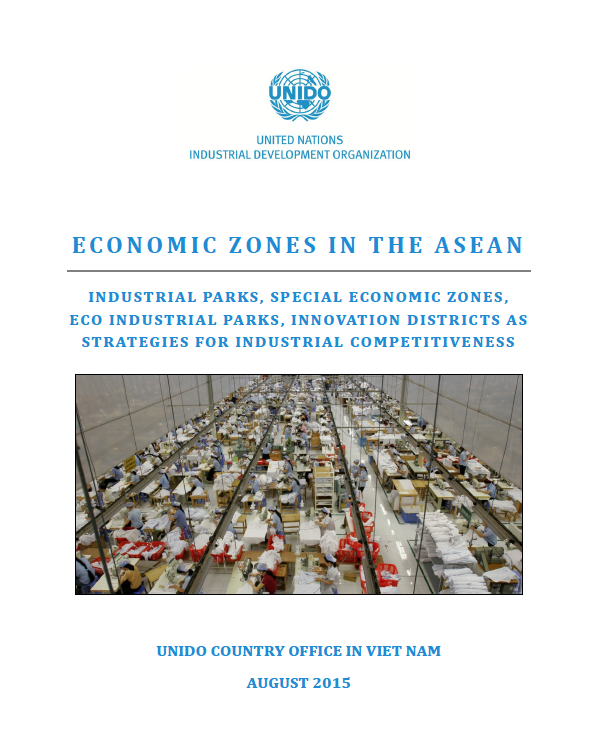Working papers
Diffusion Strategy of Green Technology and Green Industry in Africa
A Study of Renewable Energy Technology Market and Energy Efficiency Adoption in Maize and Cassava Processing Industries in Kenya and Nigeria
Energy Efficiency Potentials in Industrial Steam Systems in China
Development of a steam systems energy efficiency cost curve
Economic Zone in the ASEAN
Industrial Parks, Special Economic Zones, Eco Industrial Parks, Innovation Districts as Strategies for Industrial Competitiveness
Manuals, primers and toolkits
- UNIDO Cleaner Production Toolkit (English/Spanish):
A complete package of reading and training materials and practical tools for training of Cleaner Production auditors and undertaking Cleaner Production assessments in companies.
- Good Organisation, Management and Governance Practices:
a primer for providers of services in Resource Efficient and Cleaner Production: a practical guideline to run a National Cleaner Production Centre in an professional and accountable way, illustrated with case studies from the NCPCs in China, Guatemala, Slovakia, South Africa, Tanzania and Viet Nam. - Enterprise Level Indicators for Resource Productivity and Pollution Intensity - A Primer for Small and Medium Sized Enterprises: a practical guide on how to set up an indicator system, monitor and report environmental performance, illustrated by enterprise level success stories from Peru, Sri Lanka and Kenya.
- Applying Cleaner Production to Multilateral Environmental Agreements (MEAs): a Training Kit: intended for anyone concerned with MEAs or Cleaner Production promotion, as a tool for creating awareness, enthusiasm and commitment, and for delivering practical training on how MEA implementation is enhanced through Cleaner Production
- CP-EE Manual: guidelines for the Integration of Cleaner Production and Energy Efficiency: provides a methodology for integration-useful to managers and technical staff alike-coupled with a set of 'tools' that CP-EE practitioners can use directly in the field.
- Energy Efficiency in Asia: internet resource for achieving greenhouse gas emission reductions through energy efficiency and cleaner production, illustrated with examples and practical tools from five sectors (chemical, metallurgical, cement, ceramics and pulp and paper) in nine Asian countries (Bangladesh, China, India, Indonesia, Mongolia, Philippines, Sri Lanka, Thailand and Vietnam)
- How to Establish and Operate a Cleaner Production Centre: intended not only to provide a comprehensive account of all the planning that goes into setting up a new Cleaner Production Centre, but also the broader and finer points that are necessary for successful operation of such an institution. In essence, the Guidance Manual provides a platform for capacity building for new as well as existing Cleaner Production Centres.
- Reference Documents on Best Available Techniques: detailed sector specific reference documents with Best Available Techniques, as determined by the Bureau of the Integrated Pollution Prevention and Control (ICPP) Directive.
- Pollution Prevention and Abatement Handbook: summary of environmental requirements and opportunities by major industry sectors, as used by the World Bank.
Programme publications
- Taking Stock and Moving Forward: the UNIDO-UNEP National Cleaner Production Centres: a summary of the achievements of the global NCPC programme and outlook on challenges and opportunities ahead to scale-up and mainstream Resource Efficient and Cleaner Production in developing and transition countries
- Joint UNIDO-UNEP Programme on Resource Efficient and Cleaner Production in Developing and Transition Countries: a brief synopsis of the joint UNIDO-UNEP Programme that supports the NCPCs to scale-up and mainstream resource efficiency and cleaner production
- Resource Productivity for Climate Action: showing how the productive use of resources is essential for climate change mitigation and adaptation in industry and explaining the role of National Cleaner Production Centres in promoting climate action and innovation
- Green Industry Newsletter: a special issue dedicated to Cleaner Production
- Independent Evaluation of the UNIDO – UNEP Cleaner Production Programme: detailed report of the independent evaluation of the NCPC programme conducted in 2007-2008. The evaluation was based on review of programme strategy and management, self-evaluation by all NCPC directors and independent in country reviews in 18 programme countries. The programme’s performance in fostering the uptake of CP methods, policies and techniques was evaluated against key evaluation criteria including: relevance, effectiveness, efficiency, sustainability, ownership and capacity development. Its integrated set of conclusions and recommendations focused on identifying complementary leverage points for developing and achieving the greater potential of the joint programme and the emerging global network
- Changing Production Patterns: Learning from the Experience of National Cleaner Production Centres (NCPCs): words of wisdom from NCPC Directors which provide guidance to those wanting to learn from the experiences, both positive and negative, of the UNIDO/UNEP National Cleaner Production Centres. Topics include: Setting up an NCPC, NCPC activities, Integrating Cleaner Production, Financial sustainability, and frequently asked questions


